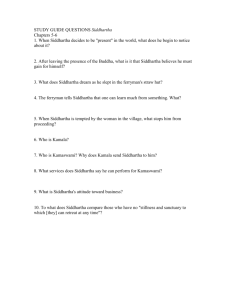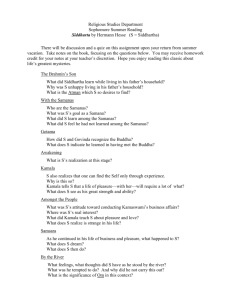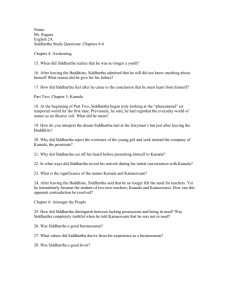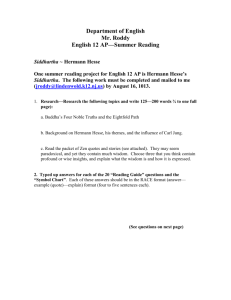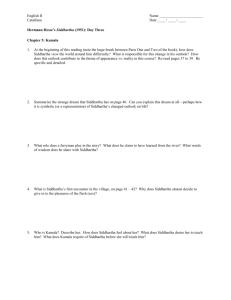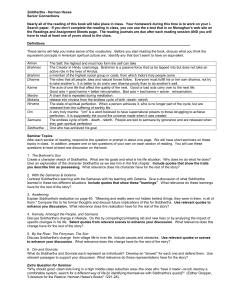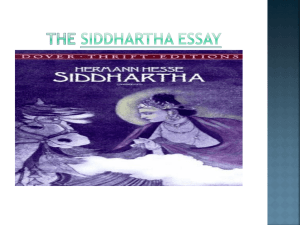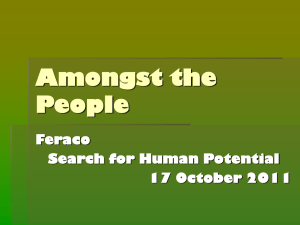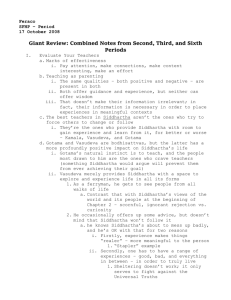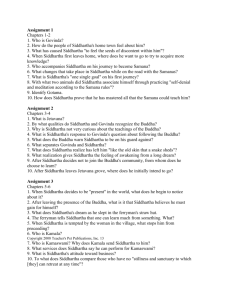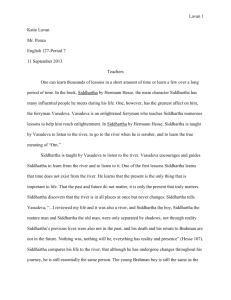MrDsDomain
advertisement
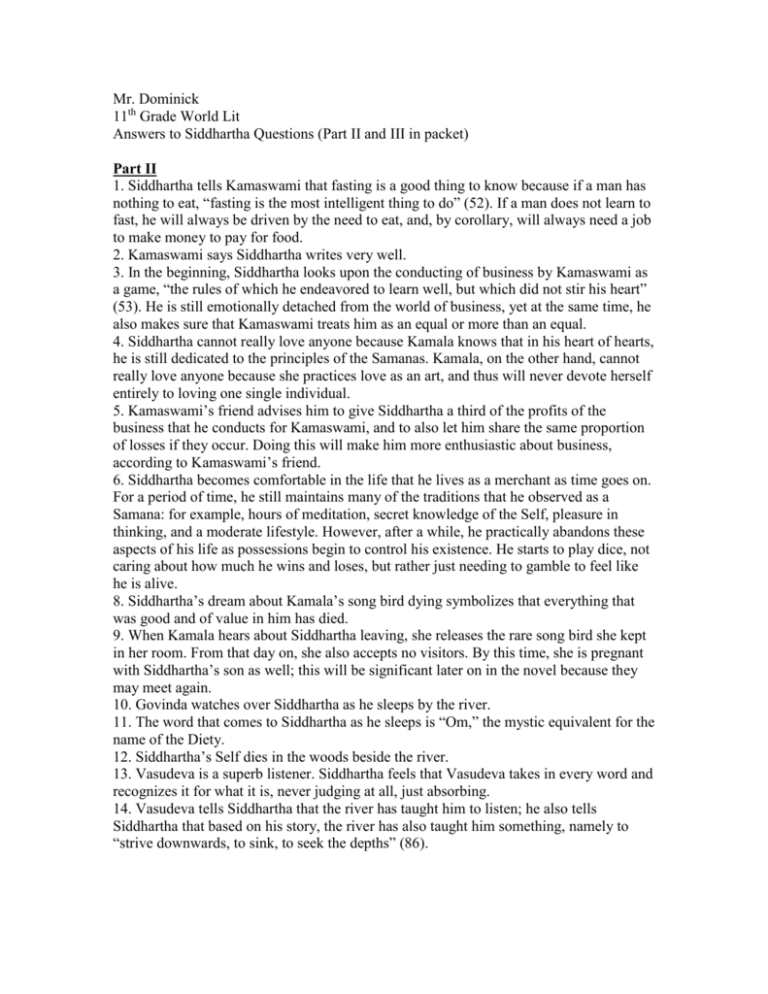
Mr. Dominick 11th Grade World Lit Answers to Siddhartha Questions (Part II and III in packet) Part II 1. Siddhartha tells Kamaswami that fasting is a good thing to know because if a man has nothing to eat, “fasting is the most intelligent thing to do” (52). If a man does not learn to fast, he will always be driven by the need to eat, and, by corollary, will always need a job to make money to pay for food. 2. Kamaswami says Siddhartha writes very well. 3. In the beginning, Siddhartha looks upon the conducting of business by Kamaswami as a game, “the rules of which he endeavored to learn well, but which did not stir his heart” (53). He is still emotionally detached from the world of business, yet at the same time, he also makes sure that Kamaswami treats him as an equal or more than an equal. 4. Siddhartha cannot really love anyone because Kamala knows that in his heart of hearts, he is still dedicated to the principles of the Samanas. Kamala, on the other hand, cannot really love anyone because she practices love as an art, and thus will never devote herself entirely to loving one single individual. 5. Kamaswami’s friend advises him to give Siddhartha a third of the profits of the business that he conducts for Kamaswami, and to also let him share the same proportion of losses if they occur. Doing this will make him more enthusiastic about business, according to Kamaswami’s friend. 6. Siddhartha becomes comfortable in the life that he lives as a merchant as time goes on. For a period of time, he still maintains many of the traditions that he observed as a Samana: for example, hours of meditation, secret knowledge of the Self, pleasure in thinking, and a moderate lifestyle. However, after a while, he practically abandons these aspects of his life as possessions begin to control his existence. He starts to play dice, not caring about how much he wins and loses, but rather just needing to gamble to feel like he is alive. 8. Siddhartha’s dream about Kamala’s song bird dying symbolizes that everything that was good and of value in him has died. 9. When Kamala hears about Siddhartha leaving, she releases the rare song bird she kept in her room. From that day on, she also accepts no visitors. By this time, she is pregnant with Siddhartha’s son as well; this will be significant later on in the novel because they may meet again. 10. Govinda watches over Siddhartha as he sleeps by the river. 11. The word that comes to Siddhartha as he sleeps is “Om,” the mystic equivalent for the name of the Diety. 12. Siddhartha’s Self dies in the woods beside the river. 13. Vasudeva is a superb listener. Siddhartha feels that Vasudeva takes in every word and recognizes it for what it is, never judging at all, just absorbing. 14. Vasudeva tells Siddhartha that the river has taught him to listen; he also tells Siddhartha that based on his story, the river has also taught him something, namely to “strive downwards, to sink, to seek the depths” (86). Part III 1. Siddhartha learns how to listen from the river like Vasudeva did. 2. Siddhartha learns from the river that there is no such thing as time. 3. Everything has reality and presence in the world, and the previous lives he lived were only separated by shadows. 6. Kamala is going to visit Gotama on his deathbed just like the followers of Gotama’s order because she wants to be there for his last moments before he attains eternal salvation. 7. Sadness has not entered Siddhartha’s soul because even though he lost Kamala after finding her once again, he has gained a son in the process.
